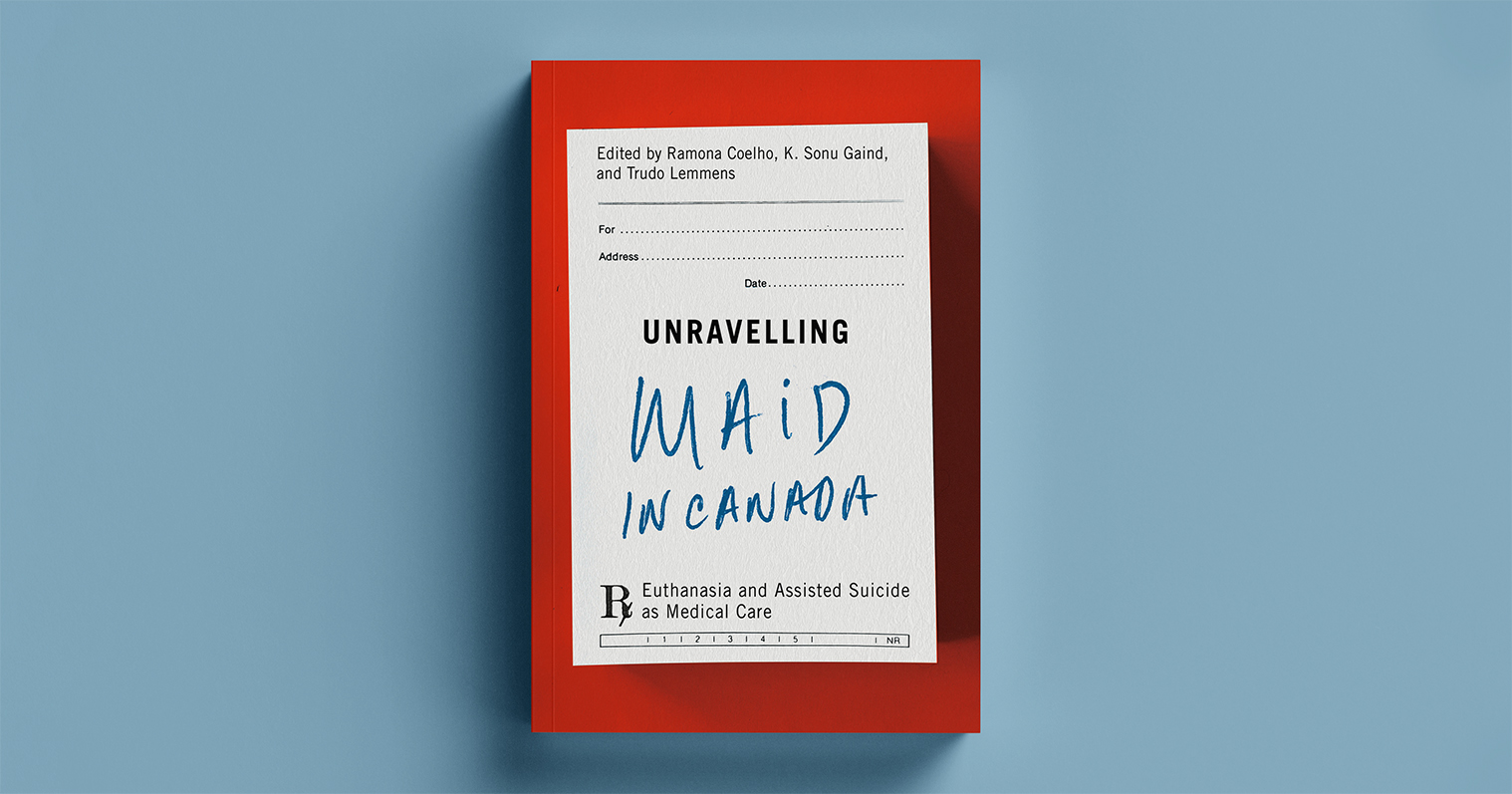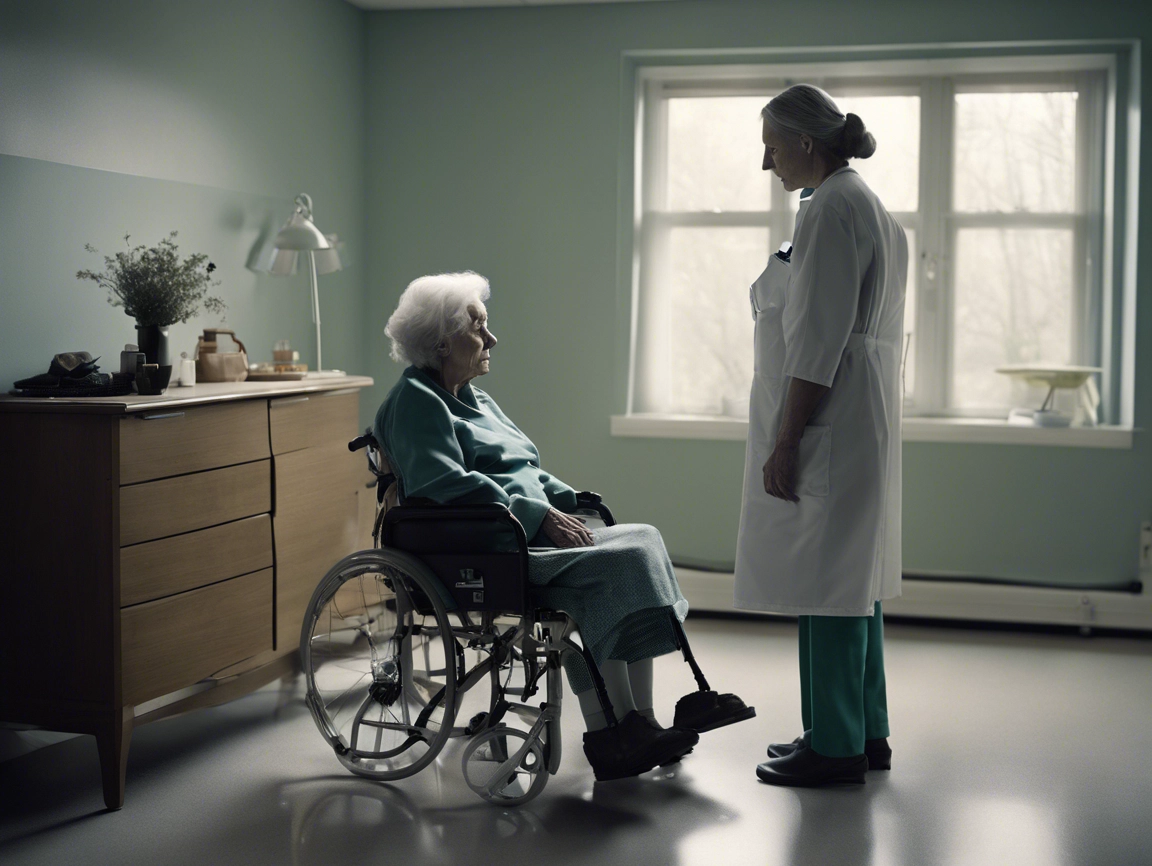Physicians’ Alliance against Euthanasia
Building safe environments.
Improve care. Make Euthanasia unimaginable.

In case anyone thinks the Canadian approach to euthanasia is the best or only approach, we have only to look to our nearest neighbour for proof to the contrary.
Recently the American Medical Association’s Council on Ethical and Juridical Affairs, having received a request from the Oregon delegation that the AMA take a neutral stance on physician “aid-in-dying”, instead reaffirmed the very clear statements in the existing Code of Ethics regarding both euthanasia and physician-assisted suicide.
Physician-assisted suicide is fundamentally incompatible with the physician’s role as healer, would be difficult or impossible to control, and would pose serious societal risks. Instead of engaging in assisted suicide, physicians must aggressively respond to the needs of patients at the end of life.
Euthanasia is fundamentally incompatible with the physician’s role as healer, would be difficult or impossible to control, and would pose serious societal risks. Euthanasia could readily be extended to incompetent patients and other vulnerable populations.
The involvement of physicians in euthanasia heightens the significance of its ethical prohibition. The physician who performs euthanasia assumes unique responsibility for the act of ending the patient’s life.
Instead of engaging in euthanasia, physicians must aggressively respond to the needs of patients at the end of life.
The Council’s measured and respectful document, written after extensive literature review and consultation with members, observes that “the ethical arguments advanced today supporting and opposing ‘physician-assisted suicide’ or ‘aid in dying’ are fundamentally unchanged from those examined in CEJA’s 1991 report on this topic”.
In other words, basic ethical principles do not change with time. Continue reading editorial.
Make euthanasia unimaginable.
Sincerely,
Catherine Ferrier
President
Alliance news
- Looking for high quality palliative care education, free of charge?
Visit our website and watch the videos of our March 24 conference, Improving care.
Doctor’s voices
- Dr. Paul Saba’s testimony against assisted suicide at the New York Health Committee. Additional information
- Dr. Catherine Ferrier comments on the situation under the Quebec law (02:47 to 05:40 minutes), followed by a panel including Dr. Paul Saba.
- Dr. Nicole Didyk, Geriatrician in Kitchener: Medical assistance in dying is not the remedy for living
“… it will be a shame if our profession can no longer include those who care for the irremediably suffering, but will not act toward ending a life.”
If you have an article, letter or interview relevant to our work published in any media, please let us know at info@collectifmedecins.org.
Call to action
- Health Canada has initiated a public consultation to collect input and ideas for the purpose of developing a framework on palliative care. This consultation will run for three months from May to July, 2018. Different questions will be asked at different times.
Take advantage of this opportunity to express your point of view! - If you live in Ontario, don’t forget to reach out to the candidates in the provincial election, about freedom of conscience and palliative care. The Coalition for Healthcare and Conscience offers some simple guidelines.
- Are you a patient or a caregiver with lived experience in health care? If so you can apply for a place and financial support to attend the CMA Health Summit, August 21-22 in Winnipeg. The deadline is June 1.
In the news
- May 6-12, 2018 marked the National Hospice Palliative Care Week 2018.
- On May 11, 2018, the West Island Palliative Care Residence launched, the Montreal Institute for Palliative Care (MIPC). The mission of the MIPC is to extend the benefits of best-in-class palliative care to as many patients and families as possible through education, knowledge transfer and research.
- The Protection of Conscience Project has published a detailed analysis of Quebec euthanasia statistics in the first two years.
- Roger Foley, the London man whose plight we discussed in our March 2018 newsletter, has sent a letter to Justice Minister Jody Wilson-Raybould, calling for a moratorium on euthanasia until legislation is changed to ensure that all necessary services to help patients live are provided first.
- On May 15, a California court overturned a 2016 state law that allows physician-assisted suicide.
- On May 23, the Fourth District Court of Appeal denied the Attorney General’s motion for a stay, effectively striking down the “End of Life Option Act.”
- The founder of the Swiss suicide clinic Dignitas is on trial for profiteering.
From the trenches
- In an interview on the CBC’s The Current, entitled “A Compromised Life Is Worth Living“, disability advocate Ing Wong-Ward asserts that neither disability nor terminal illness rob life of dignity. Rather, when medical and social supports are inadequate or unavailable, suffering will be immense and the will to live is eroded.
- Euthanasia was a hot topic at the ACFAS conference in Saguenay in early May. A doctor in the audience admitted to violating the law and writing false information on the Commission report.
- Dr. Michèle Marchand, one of the architects of the Collège des Médecins du Québec’s promotion of euthanasia, reflected at the ACFAS conference on whether “medical aid in dying” is a right or health care (un droit ou un soin?), ignoring all of us who think it is neither.
- A very thoughtful column by Patrick Lagacé in la Presse +, on palliative care and the fear of death.
- A nurse voices her opinion to the rule proposed by the U.S. Department of Health and Human Services (HHS) Office for Civil Rights (OCR) and reminds us of the responsibility of health care professionals to promote health and safety, and preserve wholeness of character and integrity without moral disengagement.
If you have experiences related to our work that you would like to share with your colleagues, please send it to info@collectifmedecins.org.
Resources
- Fatal Flaws, the new film by the Euthanasia Prevention Coalition, will be available soon. Reserve your copy!
- A review and commentary on the film: Click here
- The film has already helped defeat an assisted suicide proposal in the island of Guernsey in the English Channel.
- Family Caregiver Decision Guide, by Dr. Carole Robinson of the University of British Columbia
Events
- The Canadian Hospice Palliative Care Conference is scheduled for June 14-16th, 2018. Registrations are ongoing.
In the literature
- JAMA Internal Medicine, April 30, 2018. Economics of Palliative Care for Hospitalized Adults with Serious Illness.
Results of the meta-analysis indicated a statistically significant reduction in cost with Palliative Care Consultation (PCC) than without. The study concluded that ‘increasing the palliative care capacity to meet national guidelines may reduce costs for hospitalized adults with serious and complex illnesses’. - European Journal of Epidemiology, April 21, 2018. How accurately is euthanasia reported on death certificates in a country with legal euthanasia: a population-based study. The study finds that clear guidelines and documentation would be essential to examine and monitor the practice of euthanasia more accurately.
If you come across articles that could be of interest to colleagues in the Alliance please send the reference to info@collectifmedecins.org.
SUPPORT OUR EFFORTS so that we can continue to speak on your behalf:
Increase our media impact:
- Invite your entourage to become a supporter of the Physicians’ Alliance >>
- Invite your entourage to follow us on Twitter >>
- Invite your entourage to like our Facebook page >>
- Invite your entourage to subscribe to our Youtube channel >>


